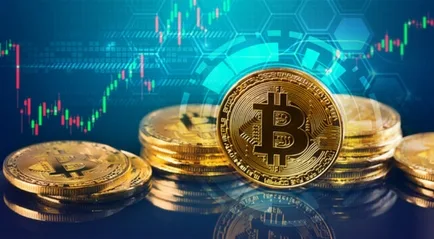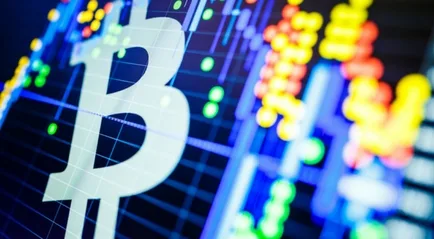Key takeaways
- A decentralised exchange (DEX) lets you trade crypto peer-to-peer without handing over control of your funds to a third party.
- DEXs are typically more private and secure than centralised platforms but can be harder to use and come with risks like impermanent loss or smart contract bugs.
- Popular DEXs like Uniswap and PancakeSwap run on blockchains such as Ethereum and BNB Chain, offering tokens not always found on centralised exchanges.
Offering peer-to-peer trading, while allowing users to retain control of their coins, decentralised exchanges offer a key security advantage over conventional platforms.
Below we explain how they work and what makes them so important. Our goal is to provide you with the information you need so that you can decide if decentralised exchanges offer the experience that's right for you.
What is a decentralised exchange?
A decentralised exchange, or DEX, is a crypto trading platform that lets users buy and sell digital assets directly with each other without needing to trust a third party to hold their funds.
Unlike centralised exchanges (like Coinbase or Binance), DEXs are non-custodial, which means you stay in full control of your crypto at all times. Trades are executed using smart contracts which are pieces of code on the blockchain that automatically carry out transactions when certain conditions are met.
Many DEXs are built on Ethereum, but others now run on networks like Binance Smart Chain, Solana, or layer-2 solutions such as Loopring, which offer faster and cheaper transactions.
Because DEXs are hosted on a distributed network of nodes, they’re generally less vulnerable to hacks or outages and they allow anyone with an internet connection to access open, borderless crypto trading.
Popular decentralised exchanges
The expansion of DeFi has led to huge levels of innovation and development in decentralised exchanges. Here is a list of some of the most popular DEXs currently in the DeFi space:
- Uniswap. A decentralised exchange that allows users to swap cryptocurrencies with global liquidity pools. The exchange was popularised due to its clean and user-friendly interface.
- SushiSwap. A hard fork development utilising Uniswap open-source code. The SushiSwap exchange was built for community governance and pursues strong innovation ethics, developing features such as SushiBar, Onsen and BentoBox.
- ThorSwap. A multichain DEX, meaning users can swap cryptocurrencies between different blockchains including Bitcoin, Ethereum, Litecoin and Binance Chain.
- Serum. A highly scalable DEX built on the Solana layer-2 blockchain. The exchange utilises an order book type exchange similar to centralised exchanges but can process transactions at a fraction of the speed.
- PancakeSwap. The Binance Smart Chain answer to Uniswap. The decentralised exchange allows users to swap cryptocurrencies utilising global liquidity pools.
- Curve Finance. A DEX focused on the exchange of stablecoins. By focusing on coins with similar volatility profiles the exchange can offer lower fees and minimal slippage.
- Dydx. A DEX that offers users the ability to perform perpetual, margin and spot trades, alongside offering lending and borrowing capabilities.
- 1inch. A decentralised exchange/aggregator that finds the best exchange rates for users across multiple DEXs.
- Kyber Network. The Kyber platform pools liquidity from decentralised exchanges, market makers and token holders to allow users to perform instant token swaps.
- wavesDEX. Built on the waves open-source blockchain, WavesDEX can be used for the exchange of digital assets along with offering crowdfunding opportunities for initial coin offerings.
How is a DEX different from a centralised exchange?
Centralised exchanges allow users to purchase digital assets using fiat and allow crypto-to-crypto exchanges. They provide a simple and straightforward entry point to the cryptocurrency market and have accounted for the vast majority of crypto trading around the world.
Unlike DEXs, centralised exchanges are governed by a centralised entity and complete transactions through a third-party market maker that provides liquidity. As a result, traders must trust the centralised exchange to hold their assets securely, usually via a digital wallet native to the exchange.
When purchasing or exchanging cryptocurrencies through a centralised exchange, a user only truly owns those assets once they have been transferred from the exchange to a personal wallet. Remember, if you don't have the private keys, you don't have true control of your digital assets.
| Centralised exchange | Decentralised exchange | |
|---|---|---|
| Trading | Conducted through the exchange | Conducted peer-to-peer |
| Control of funds | Exchange controls your coins and tokens | You control your coins and tokens |
| Anonymous trading? |
|
|
| Hosting | Centralised servers | Distributed network |
| Prone to hacks? |
|
|
| Subject to government interference? |
|
|
| Account withdrawal limits? |
|
|
Compare some of the most popular centralised exchanges side-by-side.
What benefits do decentralised exchanges offer?
Decentralised exchanges (DEXs) let people trade crypto without needing a middleman. They run on smart contracts, so they’re open 24/7 and often have lower fees than traditional platforms. There’s usually no need to provide ID, which makes them accessible to anyone with a crypto wallet.
Many DEXs are also run by their communities through DAOs (Decentralised Autonomous Organisations). This means users who hold the platform’s token can vote on decisions and help shape how the exchange works.
Another big benefit is how liquidity works. Instead of relying on a central party like a bank to provide buy/sell orders, some DEXs use liquidity pools. Anyone can contribute crypto to a pool, and in return, they earn a share of trading fees. Prices are set using an algorithm called an automated market maker (AMM), and profits go back to users rather than a central company.
Automated Market Makers
Many popular decentralised exchanges in the DeFi sector now utilise an automated market maker (AMM), or algorithm, to set exchange prices.
The AMM uses smart contracts in conjunction with global liquidity pools, which are pots of cryptocurrency assets supplied to the exchange by individuals in return for interest. The AMM uses the balance of cryptocurrency assets in a liquidity pool, for example, ETH-USDC, to set the exchange price for the pair.
When a trader comes to a DEX with ETH and wants to exchange it for USDC, the AMM will use the current balance of the ETH-USDC liquidity pool to offer the trader an exchange price. If the trader agrees, the ETH will be exchanged with USDC from the liquidity pool via smart contracts.
Providing liquidity to a DEX
DEXs have revolutionised the world of liquidity. By utilising global liquidity pools supplied by individuals a third party market maker is no longer required. Instead, each market (token pairing) is supplied by a collection of liquidity providers.
Liquidity providers are users that deposit liquidity (cryptocurrency assets) with an exchange so that other users can trade with them. For supplying funds, liquidity providers are rewarded. Rewards vary between exchanges but usually consist of a proportion of the transaction fees or a share of the cryptocurrency token native to the exchange.
Anyone with cryptocurrency assets can become a liquidity provider.
What to consider when choosing a decentralised exchange
Decentralised exchanges vary in terms of their user-friendliness, fees, customer assistance and even the digital currencies they support. With this in mind, you'll need to thoroughly compare features before deciding on the right platform for your needs. Factors you should consider include:
- Ease of use. DEXs often have a steep learning curve and can be difficult for new cryptocurrency investors to understand. Take a look at each DEX's trading interface to see how easy it will be to use.
- Security features. Check for any additional security features the platform offers to help protect your funds. For example, some platforms allow you to directly link your hardware wallet to the trading contract.
- Cryptocurrencies available. Which coins and tokens can you trade on the platform? Are all your desired cryptocurrencies supported, and how/when are new coins and tokens listed?
- Trading volume. How much trading volume does the platform currently maintain? Is there enough liquidity to support your trading needs?
- Transaction fees. Check the fine print for details of the platform's trading fees and any other charges that may apply to transactions.
- Signup process. How quick and easy is it to register for an account? What details do you need to provide? Is an account even required?
- User reviews. One way to get a better feel for the quality of an exchange is to check out some independent reviews. This will help you find out what sort of experience other users have had on the platform and whether they've had any problems or concerns.
By considering these factors and comparing the features of a range of platforms, you should be able to find a decentralised exchange that's right for your needs. If you want to buy or sell cryptocurrency without exposing yourself to the security risks associated with a centralised platform, it's a task well worth doing.
Risks of using a decentralised exchange
Whilst tackling some of the security and trust issues of centralised exchanges, decentralised exchanges are not without their own associated risks. These risks should be carefully evaluated before utilising any exchange.
- Smart contracts. Decentralised exchanges run on smart contracts. Although innovative, smart contracts can contain bugs of code which can lead to malfunctions within the associated system. Malfunctions can result in the loss of funds within a DEX.
- Hack. Like centralised exchanges, DEXs still utilise the internet to process transactions. Although secure, anything connected to the internet is always liable to attack from a malicious third party. Another target for hackers is a user's Web 3.0 digital wallet. These wallets are classified as 'hot' wallets due to the frequent connection to the internet. However, they are required for the interaction of many DEXs.
- Slippage. When performing exchanges on a DEX, slippage in exchange prices may occur. Slippage is the difference between the transaction price quoted and the exchange price executed. Slippage can eat into any profits hoped to be made from a trade.
Pros and cons of decentralised exchanges
Pros
- Non-custodial. You retain control of your funds. You don't have to trust a third party to safely manage your coins and tokens.
- Accessibility. DEXs provide increased privacy to traders and do not require any KYC data. There are no transaction and withdrawal limits typically imposed by centralised exchanges.
- 24/7 trading. No risk of server downtime causing you to miss a trading opportunity.
- Fees. Lower trading fees than centralised exchanges thanks to the introduction of atomic swaps. DEXs offer faster and more efficient trading.
- Unexpected shutdowns. Their decentralised nature reduces the risk of government regulation or crackdowns.
Cons
- Intimidating. Not always as easy to use as conventional exchanges and can be confusing for new users.
- Advanced trading tools. Many don't yet provide advanced trading tools in comparison to the advanced platforms offered by centralised exchanges.
- Variable liquidity. Liquidity varies from DEX to DEX. It is always good practice to check the liquidity of a token pair before exchanging so that you can avoid slippage.
- Customer support. Customer support can be lacking on many exchanges as they do not have the large teams behind them like a centralised exchange would.
- Regulation. Being decentralised by definition means the exchanges are not regulated which means you may not be afforded legal protections.

"Decentralised exchanges put the power back in the hands of users. But with that power comes more responsibility and risk. If you lose access to your wallet or fall victim to a scam, there’s no customer service team to help you recover your funds and you may not have legal recourse.”"
FAQs
Sources
Images: Shutterstock
Disclosure: At the time of writing, the author holds IOTA and XLM.
Ask a question
More guides on Finder
-
What is a DAO? Decentralised Autonomous Organisations explained
DAOs are already replacing traditional business models and revolutionising the world of investing. Find out how they work and how to invest.
-
DeFi coins and tokens: A simple guide for beginners
DeFi tokens compose a prominent sector in the cryptocurrency markets. Learn the basics of these tokens here.
-
What is impermanent loss?
Impermanent loss can be an unforeseen risk when providing liquidity to DeFi. Here we explain what it is with an easy to follow example, and outline how it can be avoided.
-
Yield farming: A beginner’s guide
Put those cryptocurrency assets to work in the DeFi sector and earn yield with yield farming.
-
DeFi and Web3 wallets in Australia
Find out how a Web 3.0 wallet can allow you to access the world of DeFi, plus discover which wallets we recommend.
-
Liquidity Pools: The backbone of DeFi
Find out how to become a liquidity provider and how liquidity provider tokens can be used.
-
What is an automated market maker?
Discover what an automated market maker is in DeFi and what it offers in comparison to the traditional market-making system.



